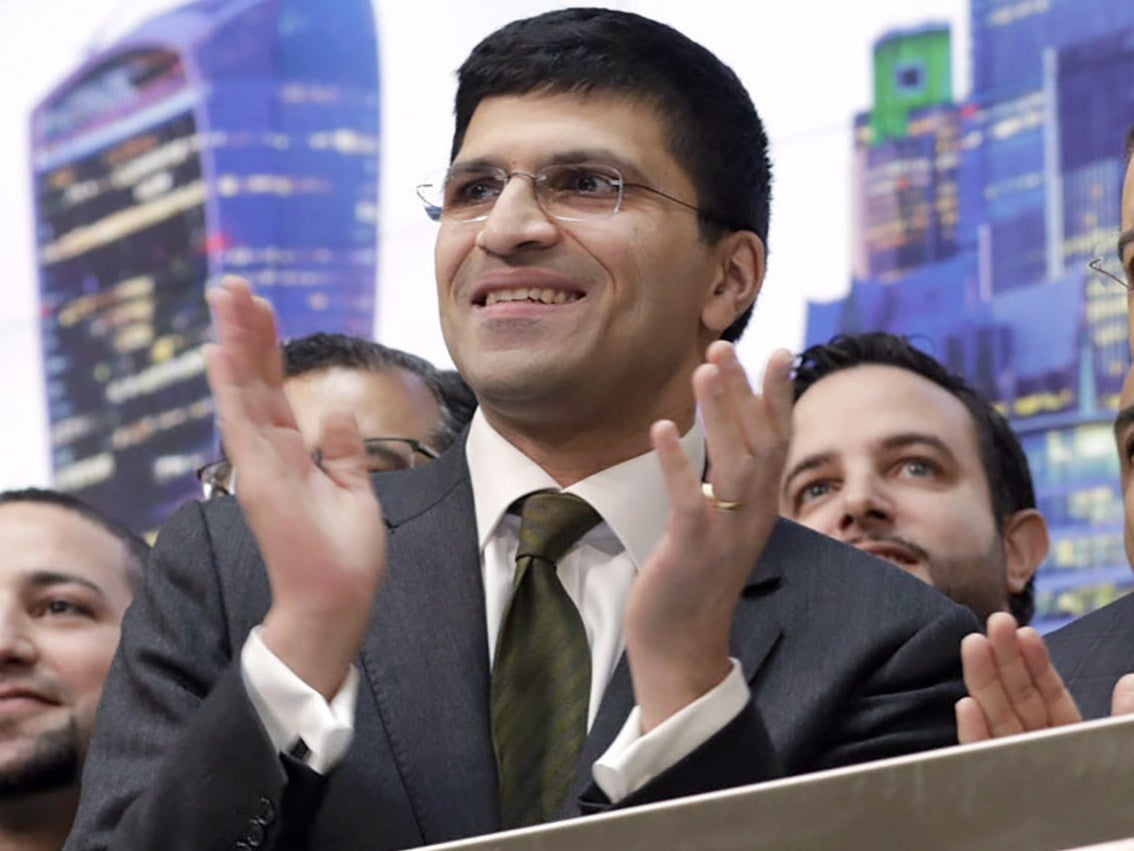Are we really about to see the end of free banking?
In other countries, banking charges are quite common, even for those who maintain a positive balance, writes James Moore. So what on earth was banking watchdog boss Nikhil Rathi thinking when he hinted Britain might be going the same way?


It’s fair to ask what on earth the boss of Britain’s financial watchdog was thinking when he mooted the end of free banking.
Nikhil Rathi, the chief executive of the Financial Conduct Authority, opened that pandora’s box in a recent speech at a City conference hosted by Morgan Stanley, an investment bank.
Here’s what he said: “We have always been clear that if business models need to change in response to competition and a changing market, we would not stand in the way.
“For example, the free if in credit banking model in the UK is a market and commercial decision, not a regulatory requirement, other than for basic bank accounts. Other countries have different, fee-based approaches. “
The blowback was swift and fierce. Consumer groups were furious and it wasn’t just them. Former pensions minister Baroness Altman, for example, said: “On the one hand it (the FCA) says it wants to support consumers, while on the other it is showing a green flag to banks to rake in extra cash from already poorly served consumers.”
“We’ve heard a lot of curious statements from the FCA recently,” said a banker of my acquaintance who was quick to answer when I asked if their employer would be taking up Rathi on his offer: “No. Not on the table. This is just the way the business of banking is done on the UK.”
It should be said, that in other countries, banking charges are quite common, even for those who maintain a positive balance. You can, if you want, join the party by opening a account that charges a monthly fee. These sort of “premium” products are out there. But they aren’t terribly popular.
Why would anyone want to further fatten their bank’s balance sheet? The Bank of England’s sky high interest rates have helped them to record profits. When rates are as high as they currently are, there is much more room for them to widen gap between what they charge to borrowers and what they pay to depositers. This they have done. Depositers have increasingly complained about being short-changed. Mortgage rates move up a lot quicker than savings rates do. No wonder they are cross.
So what was Rathi, who is no fool, up to? For that you have to look at the rest of his speech and the City audience which he said he wanted to open up “a deeper, more open relationship” with.
This sort of audience has been looking askance (as you might expect) at the way the watchdog handles its “consumer duty”. As part of this, the regulator has asked banks and other financial companies (insurers, asset managers etc) to do things they aren’t always very good at. This includes offering products and services that are well designed for their target markets, that are sold honestly (stop laughing at the back), that people understand and that offer fair value.
Where this doesn’t happen, the regulator may investigate and intervene. A recent example of this includes what is shaping up to the next big scandal: the commission car retailers and motor finance brokers used to receive linked to the interest rates their customers paid on car loans. If you get more commission for higher rates, what do you think will be the result? The FCA banned the practice shortly after the pandemic, saying this could save consumers £165m a year.
Complaints about past poor practice inevitably started to flow in the direction of the Financial Services Ombudsman, a statutory body that can order finance companies to pay redress when they behave badly. A fullscale FCA review is now under way. Those who’ve likened this to the next PPI scandal – which cost the industry £38bn plus – may be wide of the mark. It be quite that big. But estimates have put the compensation that could (with an emphasis on could) be owed to consumers at comfortably in excess of £1bn.
This, and other interventions, have led to grumbling in the City about how the FCA is managing the “consumer duty” when it comes to balancing this with its other objectives, in particular the “secondary” one that calls upon it to promote the City’s international competitiveness and encourage growth. The subtext: You won’t grow anything if you’re constantly dumping on us!
Please. If people have been fleeced to the tune of hundreds of millions through dubious practices when buying cars, they absolutely should be compensated. And where markets, or market practices, are poorly serving consumers then the FCA absolutely should intervene regardless of industry grousing. This was (more or less) what Rathi was saying.
But for the boss of the FCA to then posit removing the free banking services UK consumers value extremely highly as the apparent price for correcting sharp practice in other areas and reforming and cleaning up makrets that aren’t working for the consumer? That’s a very poor message to send out. Free banking should not be anyone’s sop.
That it won’t happen – no bank would dare go it alone and they’d rightly face a swift competition probe if they moved en masse because that would be highly illegal – doesn’t matter. It’s a bad look for the FCA. I’m told Rathi thinks very carefully before he speaks. He needs to think a little harder.






Join our commenting forum
Join thought-provoking conversations, follow other Independent readers and see their replies
Comments